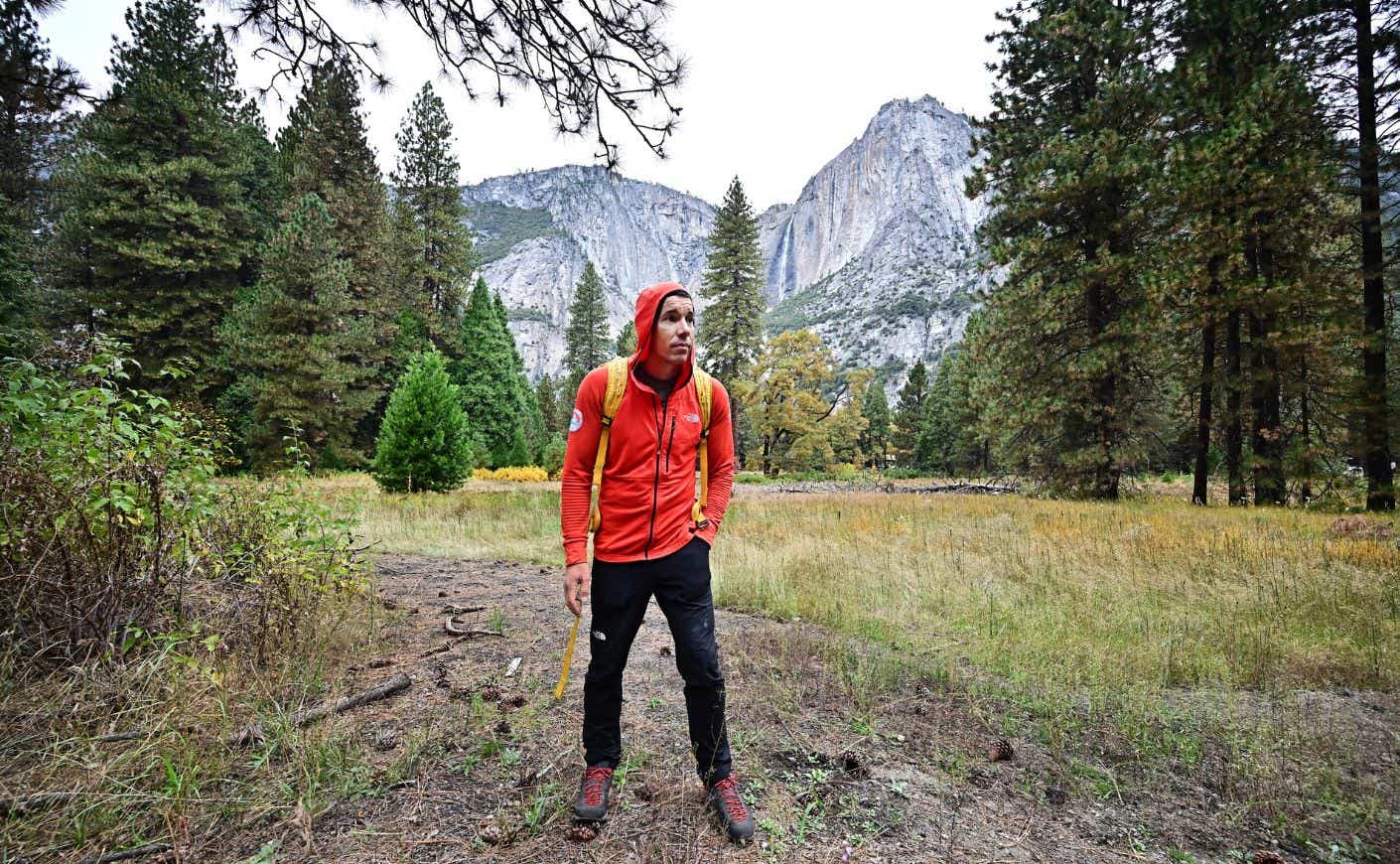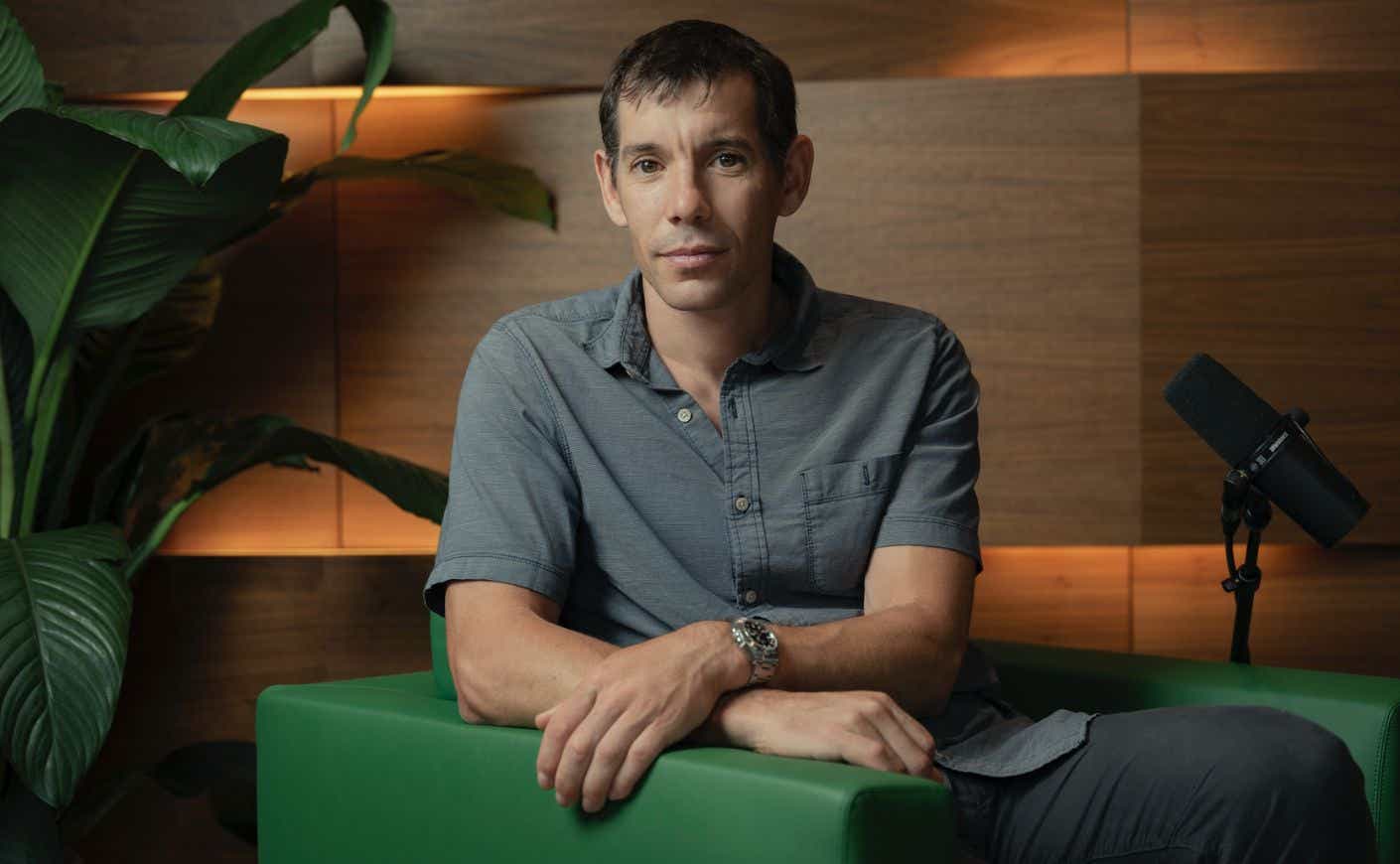From granite walls to glass towers, Alex Honnold has climbed just about everything.
These days, though, the legendary climber and Free Solo star is just as focused on what’s happening on the ground. Through his nonprofit, the Honnold Foundation, and his podcast Planet Visionaries in partnership with the Rolex Perpetual Planet Initiative, he’s helping expand access to solar energy and spotlight community-led climate solutions around the world.
We caught up with Honnold to talk about why cityscapes can be just as awe-inspiring as mountain peaks, how fatherhood has changed his approach to risk, and how this rock climbed and a beloved actor ended up tackling the same global mission.
Katie Couric Media: You’re best known for climbing big walls in wild places, but you’ve also scaled skyscrapers. How does that experience compare — mentally and physically — to being on a mountain face?
Alex Honnold: Honestly, it’s actually a lot more similar than you might think. The experience of climbing is largely the same — you just hold on, try not to fall off, focus on your movement, and climb well. Being in nature, the view is incredible, obviously — you’re in beautiful places — but in some ways the view in a city is more dynamic. When you get a bird’s-eye view of a city, it’s pretty incredible. You look down and think, “10 million people live down there, and there’s so much life happening below me.”

What’s going through your mind in those moments?
Internally, there’s not that much happening. You’re just doing the thing — you’re just climbing. Whether you’re on a building or a cliff, whether people are watching or not, or someone’s filming nearby, either way, at the heart of it, you’re just climbing. You let all the other stuff go away and focus on the thing you’re doing.
How has becoming a father changed your relationship to climbing — and do your kids ever worry when you head off on big adventures?
My kids don’t worry about it yet — they’re too young to really understand or care. Whenever my 3-year-old gets upset, she’ll say, “I hope you go to the mountain and never come back,” which is actually kind of funny. But having a family has definitely changed how I spend my time. I’m home a lot more now, which means I’m taking on different kinds of challenges — things closer to home, things I can fit in during school hours, between drop-off and pick-up.
Free Solo introduced your world to millions. How has that visibility changed your life?
The visibility from Free Solo definitely gave me a bigger platform and allowed me to have a greater impact through the Honnold Foundation. It’s also opened the door to projects like Planet Visionaries and given me access to this broader world, which I think is great — it lets me do more that actually matters.
That said, in a lot of ways my life hasn’t changed that much. I’m still climbing all the time, I have my family, and I’m basically just living my life. I look back on the Free Solo film tour as this kind of wild, fond memory — like a crazy chapter that happened in my life. It’s almost like a semester abroad. For me, it’s like, “Oh yeah, I went to Hollywood for a semester — that was weird,” but a good experience overall.
What inspired you to start the Honnold Foundation?
The Honnold Foundation has supported community solar around the world for about 12 or 13 years now. It started because I was personally looking for environmental projects that also improved human living conditions. There’s no point in protecting nature if you’re not also helping the human communities that live there — nobody cares about nature unless their basic needs are met.
At first, I just wanted to give some money to something that seemed like a good cause, so I started Googling what’s actually useful, what’s good for the environment, and good for people. I kept coming back to solar projects — basically, energy access issues in remote parts of the world. Getting people off fossil fuels, helping with energy access in off-grid communities, things like that. And now, 12 years later, we’ve been doing that long enough that we’ve just made that our mission.
How do you decide which projects to fund?
We have an open call for grants from around the world, so we get hundreds of applications. Sadly, we’re only able to fund a small fraction, but that means we get to choose the very best. We end up supporting projects that have secondary and tertiary benefits — like they’re using solar power in a community that’s also creating jobs or doing conservation work in the region.
One partner, Kara Solar, builds solar-powered boats in the Amazon. When boat transportation is cheap enough, people don’t advocate for cutting roads through the jungle. And once you cut a road through the jungle, that’s the starting point for deforestation and illegal mining — all the things that destroy the forest. If you’re trying to protect the forest, one of the best ways to do it is to make boat transit affordable and sustainable.
This year, we’ll have funded about 120 projects around the world. The key is keeping it community-led — we don’t pretend to know what will work best. People know what their communities need; they just often lack funding. Our role is to help them do what they already know is right.
You also host Planet Visionaries, which highlights climate solutions rather than the problems. Why that approach?
One of the things I love about hosting Planet Visionaries is that I come out of every interview feeling super inspired to work on my own projects. The guests are always so passionate about what they do, and that energy really rubs off. I hope listeners feel the same way — that they finish an episode thinking, “Wow, this person has devoted their life to this really specific issue,” and feel motivated to take action themselves.
Basically everyone I interview has something they’ve figured out in their own corner of the world — maybe they’ve protected one small region, reforested a specific area, or saved a section of river. It’s kind of cliché, but that whole “think global, act local” idea really applies. When it comes to conservation, anything you do locally matters — you can save one plot of land, one forest, one ecosystem.
You’ve featured guests from all walks of life, including Mark Ruffalo. What made you bring him on?
I brought on Mark Ruffalo because he co-founded The Solutions Project, which, as it turns out, is a nonprofit that does almost the exact same thing as the Honnold Foundation. It was a really interesting conversation because we’re both so passionate about community-led renewable energy projects — and we both independently came to the same conclusion that this is the right solution for so many global issues.
It turns out we’re working in exactly the same space, funding really similar kinds of projects. I thought it was so cool that an actor and a rock climber both arrived at the same idea — that this is what we should be doing to make the world a better place — and both started nonprofits to fund that kind of work. Our two nonprofits, the Solutions Project and the Honnold Foundation, have actually co-funded some of the same projects, working with a lot of the same organizations.
This story was edited and condensed for length and clarity.









